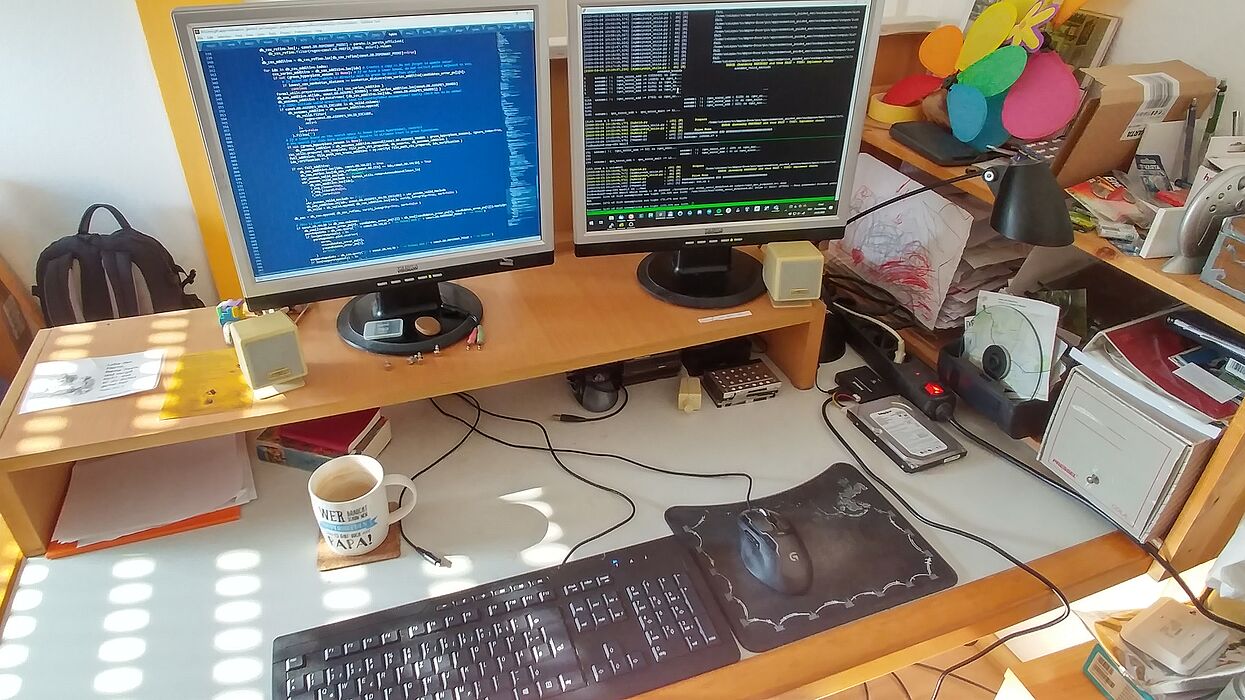What the faculty and its employees are now doing
Since March 18th, the university has had to transfer its core operations. Almost all employees have switched to the so-called home office and our students now must study from home. But what does that actually mean and who is doing what right now?
There are fixed structures in the faculty which help us to implement changes, whether it be administrative questions such as mail distribution or with questions about permitted test acceptance. Our dean, Prof. Dr. Peter Schreier, regularly informs the faculty employees about the changes that this new way of working will bring. We will now see how closely, we previously worked together. The managing director Dr. Markus Holt explains how the faculty is now reacting to the situation: “The faculty, like the other faculties, is represented by the dean on the crisis team, in which decisions are made that will affect university operations in the coming weeks and months. The crisis team can then react very quickly to a changing situation. Regardless of this, our goal as a faculty is to maintain as much business as possible for our students, scientists and employees: the dean, dean's office and management are in touch several times a day to adapt our processes to the new situation and to find solutions. We quickly adapted our internal processes, for example the postal service, to the new situation, so that applications and other letters can now be processed much faster than before.”
It has long been shown that the image of a loner sitting in front of his computer was never for us a reality. Our scientists are eager to find the right tools to keep in close contact with each other. Teamwork is required, both in research and when it comes to the right format for online teaching. The university provides the framework, that must be implemented by the individual teachers, who are now faced with new challenges.
The acquisition of information technology has become important, as it forms an important bridge in enabling us to connect with people, both in private and during the current work situation. In addition to the classic variant of email, for example, which is worked and then discussed with Microsoft teams.
“For this, there are no short, spontaneous meetings with work colleagues. Such meetings could always be good food for thought,” says Tim Hansmeier, staff member at the Institute for Computer Science. Alongside this, the common path to the cafeteria is also closed. Nevertheless, some can see the positives and can particularly benefit from the saved travel and better-quality family time. Anyone who now has their own office space at home can be happy. At least that's how Tobias Wiersema, a research assistant, sees it, who otherwise commutes to work every day.
He is also concerned about how our students will cope with the situation during the summer semester: “something like this depends on the co-operation of everyone, but at the moment it is something we cannot avoid. The art is now to make a virtue out of necessity.” He advises to keep busy and maybe learn be a foreign language, programming, an instrument, cutting / editing films or to maintain knowledge, something which you have been missing for the last two semesters".
His colleague Tim Hansmeier, on the other hand, advises calmness: "If the corona pandemic is causing problems with your studies: try to be pragmatic. The situation is new for everyone involved and new (exceptional) regulations are announced almost daily. As long as you are healthy, the chances are that your problem will almost automatically solve itself - at least as far as your studies are concerned. "
Current developments can be found on the information pages of the university and also on the pages of our faculty.

